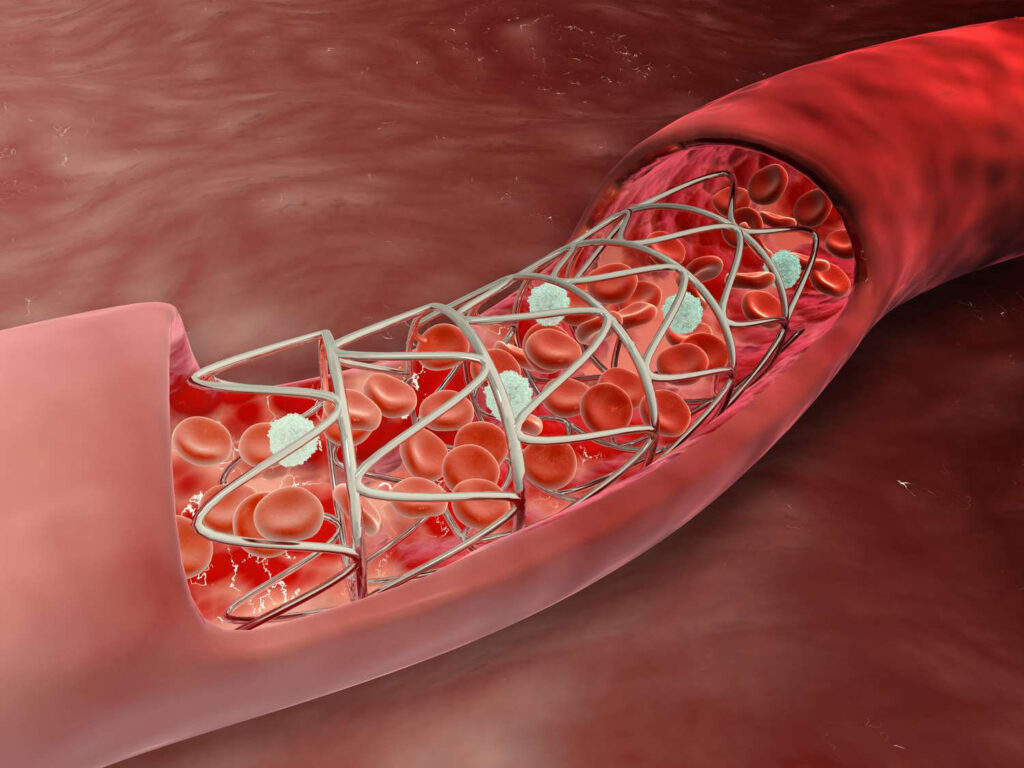
Niti-S™ Self-Expandable Metal Stents
In the ever-evolving landscape of medical technology, innovations continue to reshape the field of gastroenterology, offering new possibilities for patient care. One such groundbreaking advancement is the Niti-S™ Self-Expandable Metal Stent (SEMS). This cutting-edge device has garnered significant attention for its efficacy in managing various gastrointestinal conditions. In this article, we will delve into the intricacies of the Niti-S™ SEMS, exploring its design, applications, and the transformative impact it has had on gastroenterological interventions.
Understanding the Basics
To comprehend the significance of Niti-S™ SEMS, it is essential to first understand the fundamentals of self-expandable metal stents. These stents are tubular devices made from metal alloys that can expand and contract without permanent deformation. The unique design allows them to be inserted into narrow or blocked gastrointestinal passages, restoring proper function.
The Niti-S™ SEMS, in particular, is crafted using Nitinol, a nickel-titanium alloy known for its superelasticity and shape memory properties. These attributes make Nitinol an ideal material for stents, as it allows them to be compressed for insertion and then expand to their predetermined shape once deployed within the body.
Applications in Gastroenterology
Niti-S™ SEMS has demonstrated remarkable versatility in the management of various gastrointestinal conditions, providing effective solutions for patients facing complex challenges. Let’s explore some of its key applications:
- Esophageal Strictures: The Niti-S™ SEMS has proven to be highly effective in treating esophageal strictures caused by conditions such as esophageal cancer, radiation therapy, or inflammatory disorders. By providing structural support and maintaining patency, these stents alleviate dysphagia and improve overall quality of life for patients.
- Biliary Obstruction: Biliary strictures and obstructions can result from conditions like pancreatic cancer or gallstones. The Niti-S™ SEMS is designed for use in the biliary system, offering a minimally invasive solution to relieve obstruction and restore normal bile flow. This has significant implications for patients who may not be suitable candidates for surgery.
- Colorectal Obstructions: Colorectal cancer and other gastrointestinal malignancies can lead to obstructions that impede normal bowel function. Niti-S™ SEMS has emerged as a valuable tool for managing colorectal strictures, providing a less invasive alternative to surgical interventions. This not only reduces the recovery time but also improves patient outcomes.
Design and Features
The success of the Niti-S™ SEMS lies not only in its choice of materials but also in its innovative design. The stent is meticulously engineered to address the specific challenges presented by different gastrointestinal conditions. Here are some key design features:
- Radiopacity: The Niti-S™ SEMS is radiopaque, meaning it is visible under X-ray imaging. This feature is crucial for accurate placement and allows gastroenterologists to monitor the stent’s position and effectiveness during and after deployment.
- Anti-migration Properties: Stent migration is a common concern in gastrointestinal interventions. To mitigate this issue, the Niti-S™ SEMS is equipped with anti-migration features such as anchor flaps or barbs, ensuring the stent remains securely in place once deployed.
- Delivery System: The stent’s delivery system is designed for precision and ease of use. Gastroenterologists can navigate the intricate gastrointestinal anatomy with greater control, facilitating accurate placement of the stent in the desired location.
Clinical Efficacy and Patient Outcomes
Numerous clinical studies and trials have highlighted the efficacy of Niti-S™ SEMS in managing gastrointestinal conditions. In a study published in the Journal of Gastroenterology, the use of Niti-S™ SEMS in patients with malignant colorectal obstructions demonstrated a high technical success rate and significant improvement in symptoms. Similar positive outcomes have been observed in studies focusing on esophageal and biliary applications.
Moreover, the minimally invasive nature of Niti-S™ SEMS procedures translates to shorter hospital stays, reduced postoperative complications, and faster recovery times for patients. This not only improves the overall patient experience but also contributes to cost-effectiveness in healthcare delivery.
Challenges and Considerations
While Niti-S™ SEMS has showcased impressive results, it is essential to acknowledge and address potential challenges associated with its use. Some considerations include:
- Stent-Related Complications: Stent-related complications, such as migration, perforation, or infection, can occur. Gastroenterologists must carefully evaluate each case, considering patient-specific factors to minimize these risks.
- Long-Term Durability: The long-term durability of Niti-S™ SEMS is an area of ongoing research. Continuous monitoring and follow-up studies are crucial to assess the stent’s performance over extended periods and identify any potential issues.
Future Directions and Innovations
As technology advances, the field of gastroenterology continues to explore new possibilities for improving patient outcomes. Future innovations in self-expandable metal stents may focus on enhanced biocompatibility, personalized stent designs, and improved delivery systems. Research efforts are also directed toward expanding the applications of Niti-S™ SEMS to address a broader range of gastrointestinal conditions.
Conclusion
The Niti-S™ Self-Expandable Metal Stent has undeniably revolutionized the landscape of gastroenterological interventions. Its innovative design, coupled with the exceptional properties of Nitinol, has positioned it as a valuable tool for managing esophageal, biliary, and colorectal conditions. The clinical efficacy, coupled with the potential for improved patient outcomes and reduced healthcare costs, highlights the transformative impact of this technology. As research and development in gastroenterology progress, Niti-S™ SEMS stands as a beacon of hope for patients facing complex gastrointestinal challenges.
